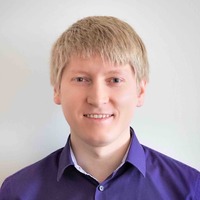Haleemur Ali - Academia.edu (original) (raw)

Related Authors
Università degli Studi di Firenze (University of Florence)
Uploads
Papers by Haleemur Ali
We implement the DiVincenzo-Shor 5 qubit quantum error correcting code into a solid-state quantum... more We implement the DiVincenzo-Shor 5 qubit quantum error correcting code into a solid-state quantum register. The quantum register is a multi charge-qubit system in a semiconductor environment, where the main sources of noise are phase decoherence and relaxation. We evaluate the decay of the density matrix for this multi-qubit system and perform regular quantum error corrections. The performance of the error correction in this realistic system is found to yield an improvement of the fidelity. The fidelity can be maintained arbitrarily close to one by sufficiently increasing the frequency of error correction. This opens the door for arbitrarily long quantum computations.
We implement the DiVincenzo-Shor 5 qubit quantum error correcting code into a solid-state quantum... more We implement the DiVincenzo-Shor 5 qubit quantum error correcting code into a solid-state quantum register. The quantum register is a multi charge-qubit system in a semiconductor environment, where the main sources of noise are phase decoherence and relaxation. We evaluate the decay of the density matrix for this multi-qubit system and perform regular quantum error corrections. The performance of the error correction in this realistic system is found to yield an improvement of the fidelity. The fidelity can be maintained arbitrarily close to one by sufficiently increasing the frequency of error correction. This opens the door for arbitrarily long quantum computations.






